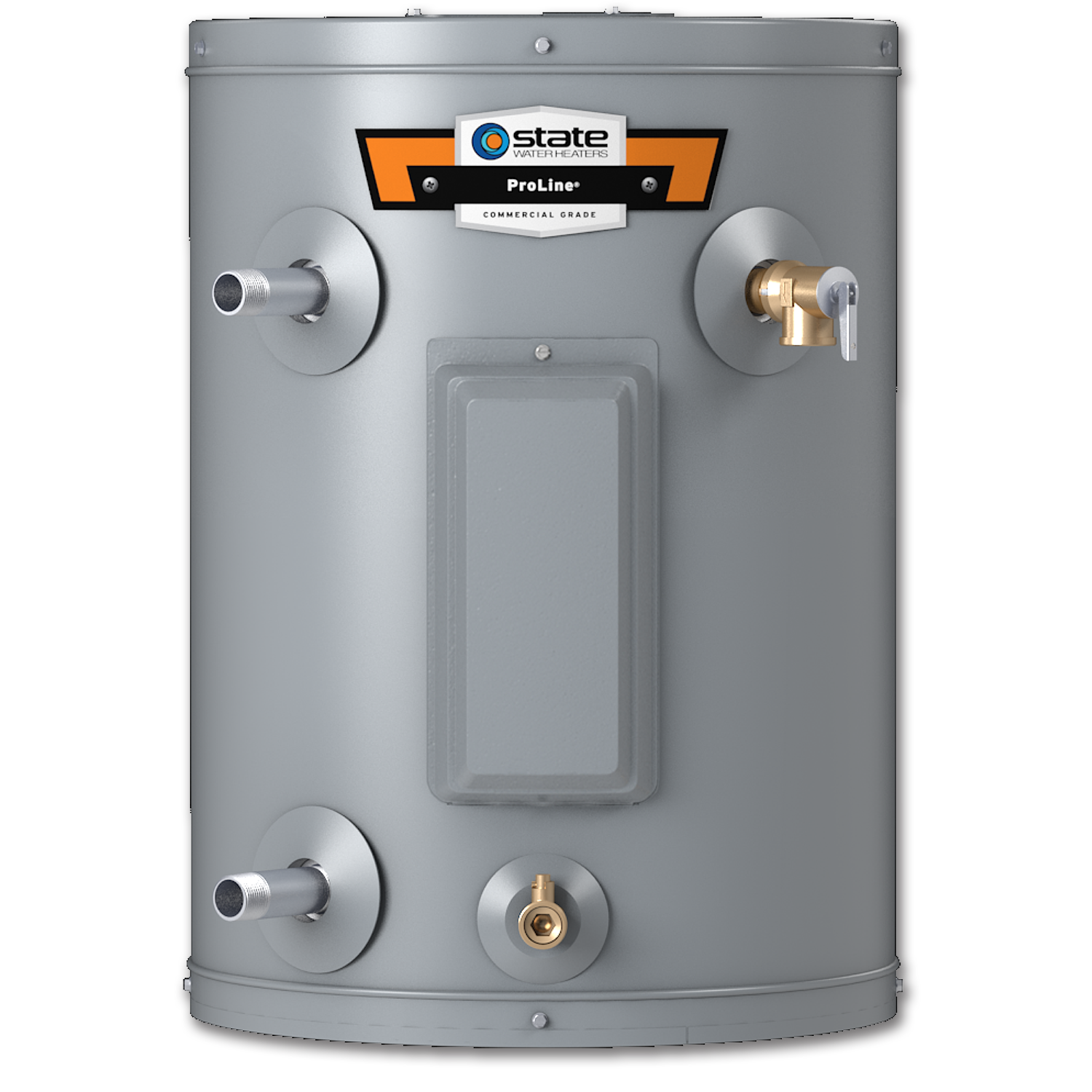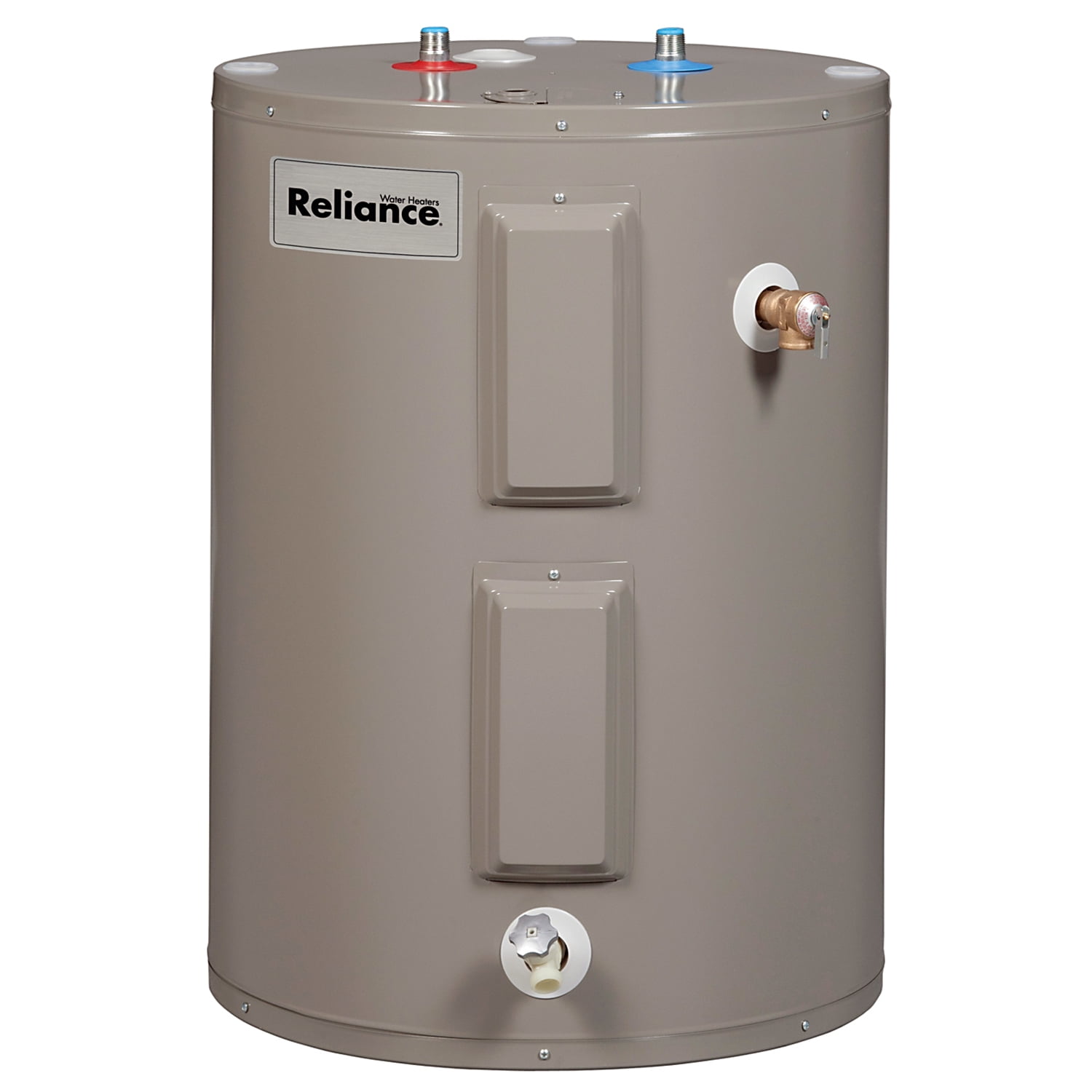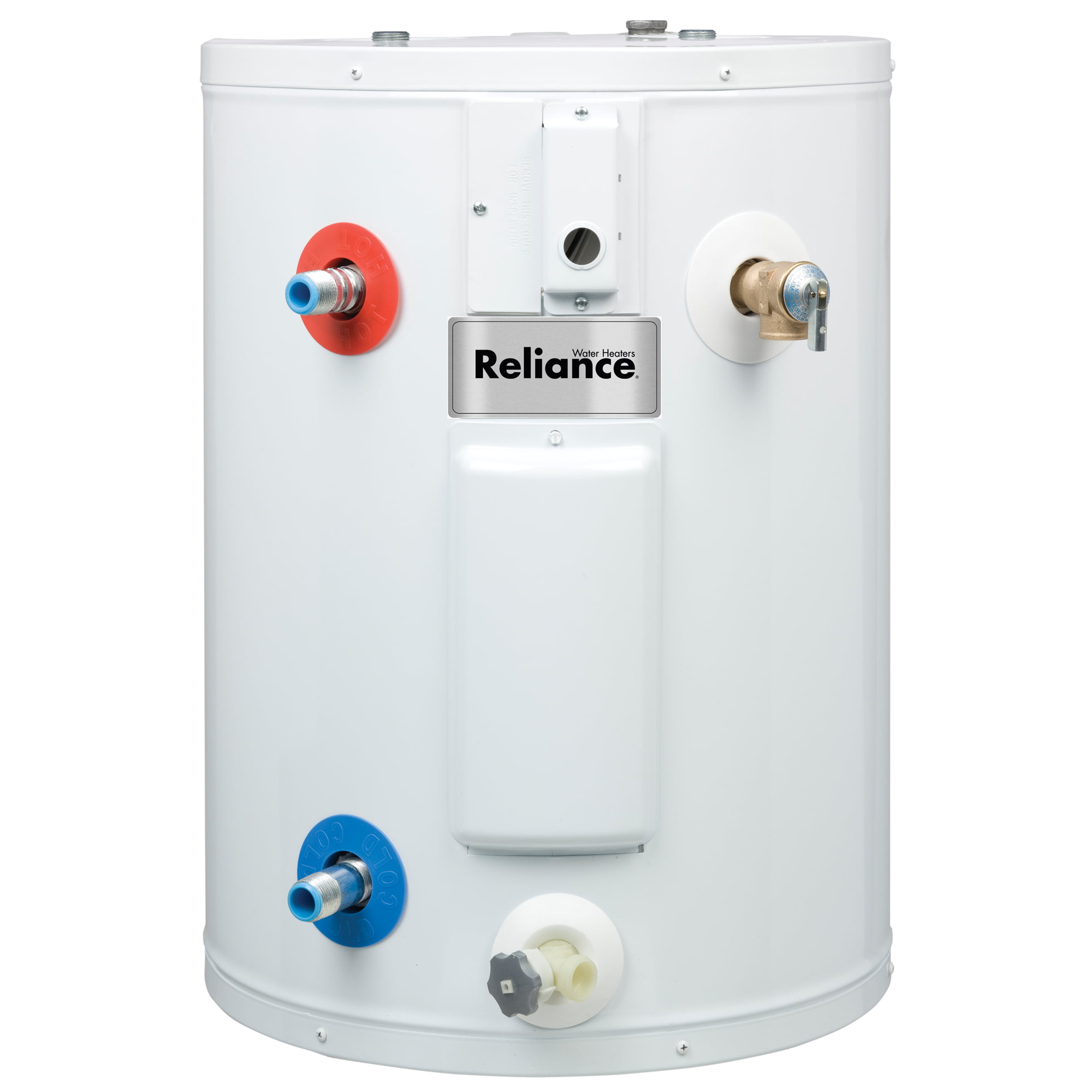Embark on a journey into the world of water heating with our comprehensive guide to 20 gallon electric water heaters. Whether you’re a homeowner seeking an energy-efficient solution or a professional looking to expand your knowledge, this guide will illuminate every aspect of these indispensable appliances.
From understanding their components and installation process to exploring their energy consumption and performance, we’ll delve into the intricacies of 20 gallon electric water heaters, empowering you with the information you need to make informed decisions.
Electric Water Heater Basics

An electric water heater is a device that uses electricity to heat water for domestic or commercial purposes. Electric water heaters are commonly used in residential and light commercial applications, providing hot water for tasks such as showering, dishwashing, and laundry.
A 20-gallon electric water heater is a specific type of electric water heater with a storage capacity of 20 US gallons (approximately 76 liters). It is a popular choice for small households or apartments with limited hot water demand.
Components of a 20-Gallon Electric Water Heater
The main components of a 20-gallon electric water heater include:
- Storage Tank:The storage tank is the main component of the water heater, where the water is heated and stored.
- Heating Element:The heating element is responsible for heating the water in the storage tank. It is usually located at the bottom of the tank.
- Thermostat:The thermostat controls the temperature of the water in the storage tank. It turns the heating element on and off as needed to maintain the desired temperature.
- Anode Rod:The anode rod is a sacrificial anode that helps to protect the storage tank from corrosion.
- Pressure Relief Valve:The pressure relief valve is a safety device that prevents the water pressure in the storage tank from becoming too high.
- Drain Valve:The drain valve is used to drain the water from the storage tank for maintenance or repairs.
Advantages of Using a 20-Gallon Electric Water Heater
- Compact Size:A 20-gallon electric water heater is relatively compact, making it suitable for small spaces.
- Energy Efficiency:Electric water heaters are generally more energy-efficient than gas water heaters, especially in areas with low electricity rates.
- Lower Installation Cost:Electric water heaters are typically less expensive to install than gas water heaters.
- No Flue Required:Electric water heaters do not require a flue, which can save space and reduce installation costs.
- Quiet Operation:Electric water heaters operate quietly, making them suitable for use in living spaces.
Disadvantages of Using a 20-Gallon Electric Water Heater
- Limited Hot Water Capacity:A 20-gallon electric water heater has a limited hot water capacity, which may not be sufficient for households with high hot water demand.
- Higher Operating Cost:Electric water heaters can have higher operating costs than gas water heaters, especially in areas with high electricity rates.
- Longer Recovery Time:Electric water heaters take longer to recover than gas water heaters, which can be a disadvantage during periods of high hot water demand.
- Prone to Scale Buildup:Electric water heaters are more prone to scale buildup than gas water heaters, which can reduce their efficiency and lifespan.
Installation and Maintenance: 20 Gallon Electric Water Heater
Installing and maintaining a 20-gallon electric water heater is essential for its optimal performance and longevity. Follow these steps to ensure proper installation and upkeep.
Installation Process, 20 gallon electric water heater
- Determine Location:Choose a well-ventilated area near water and electricity sources.
- Prepare Plumbing:Install cold and hot water pipes and connect them to the water heater.
- Electrical Connection:Hire a qualified electrician to connect the water heater to a dedicated circuit.
- Secure the Heater:Bolt the water heater to the floor or wall using the provided brackets.
- Test and Insulate:Turn on the water and electricity, check for leaks, and insulate the water heater.
Energy Efficiency and Cost
Understanding the energy efficiency and operating costs associated with a 20-gallon electric water heater is crucial for making informed decisions about your water heating needs. This section explores these aspects, providing insights into the energy consumption, efficiency comparisons, and cost implications.
Calculating Energy Consumption
The energy consumption of a 20-gallon electric water heater is primarily influenced by its energy factor (EF) and usage patterns. The EF, measured in gallons per year per unit of energy (G/Y/kWh), indicates the amount of hot water the heater can produce per unit of electricity consumed.
Higher EF values represent greater energy efficiency.To calculate the energy consumption, multiply the heater’s EF by its annual hot water usage in gallons. For example, a water heater with an EF of 0.85 and an annual usage of 3,000 gallons would consume 3,529 kWh of electricity (3,000 gallons / 0.85 EF).
Comparing Energy Efficiency
Different types of 20-gallon electric water heaters vary in their energy efficiency. Standard electric water heaters typically have EFs ranging from 0.67 to 0.90, while high-efficiency models can achieve EFs of 0.95 or higher. Heat pump water heaters, which use a refrigeration cycle to transfer heat from the surrounding air to the water, offer even higher EFs, typically ranging from 2.0 to 3.0.
Estimating Operating Cost
The operating cost of a 20-gallon electric water heater depends on the energy consumption and the local electricity rates. To estimate the cost, multiply the energy consumption in kWh by the electricity rate per kWh. For example, with an energy consumption of 3,529 kWh and an electricity rate of $0.12 per kWh, the annual operating cost would be $423.48 (3,529 kWh
$0.12/kWh).
Performance and Capacity
A 20-gallon electric water heater is a mid-sized unit that can provide ample hot water for small households or apartments with two to three occupants. It is a reliable and cost-effective option for those with limited space or a low hot water demand.
The performance of a 20-gallon electric water heater is determined by its heating element, insulation, and recovery rate. The heating element heats the water, while the insulation helps retain heat and reduce energy loss. The recovery rate refers to how quickly the water heater can heat water after it has been used.
Capacity
The capacity of a 20-gallon electric water heater is 20 gallons of hot water. This is sufficient for a small household or apartment with two to three occupants. However, it is important to consider the hot water demand of your household when selecting a water heater.
If you have a high hot water demand, you may need a larger water heater.
Factors Affecting Performance and Capacity
- Heating element:A higher-wattage heating element will heat water more quickly.
- Insulation:More insulation will help retain heat and reduce energy loss.
- Recovery rate:A faster recovery rate means the water heater can heat water more quickly after it has been used.
- Hot water demand:The hot water demand of your household will determine the size of water heater you need.
By understanding the performance and capacity of a 20-gallon electric water heater, you can make an informed decision about whether it is the right choice for your home.
Safety Features and Regulations

Electric water heaters are designed with multiple safety features to ensure the safety of users and prevent potential hazards. These features include:
Temperature and pressure relief valve (TPR valve)
The TPR valve is a critical safety device that releases excess pressure and temperature from the water heater. It prevents the tank from rupturing in case of overheating or excessive pressure buildup.
Sacrificial anode rod
The anode rod is a metal rod made of magnesium or aluminum that corrodes instead of the water heater tank. This protects the tank from rust and corrosion, extending its lifespan.
Ground fault circuit interrupter (GFCI)
A GFCI is an electrical safety device that detects imbalances in the electrical current and shuts off the power supply to prevent electrical shocks.
Overheating protection
Electric water heaters are equipped with thermostats that regulate the water temperature and prevent overheating. If the water temperature exceeds a safe limit, the thermostat will automatically shut off the heating element.
Regulations and Codes
The installation and use of electric water heaters are subject to various regulations and codes to ensure safety and compliance. These regulations include:
National Electrical Code (NEC)
The NEC is a set of standards for the safe installation of electrical equipment, including water heaters. It specifies requirements for wiring, grounding, and other electrical aspects of water heater installation.
Uniform Plumbing Code (UPC)
The UPC is a set of standards for the safe installation of plumbing systems, including water heaters. It specifies requirements for water heater placement, venting, and other plumbing aspects.
Local building codes
Local building codes may have additional requirements for the installation and use of water heaters. These codes vary by location and should be consulted before installing a water heater.
Ensuring Safe Operation
To ensure the safe operation of a 20-gallon electric water heater, follow these tips:
- Install the water heater according to the manufacturer’s instructions and applicable regulations.
- Have the water heater inspected by a qualified electrician or plumber regularly.
- Test the TPR valve annually by lifting the lever to ensure it is operating correctly.
- Replace the sacrificial anode rod every 3 to 5 years to prevent corrosion.
- Monitor the water temperature regularly and adjust the thermostat as needed to prevent overheating.
Conclusion

In conclusion, 20 gallon electric water heaters offer a reliable and efficient means of providing hot water for your home. By considering the factors discussed in this guide, you can select the perfect model for your needs and ensure its optimal performance for years to come.
Remember, a well-maintained water heater is a key component of a comfortable and energy-conscious home.
FAQ Guide
What are the advantages of a 20 gallon electric water heater?
20 gallon electric water heaters are compact, energy-efficient, and provide ample hot water for small households or limited hot water usage.
How do I install a 20 gallon electric water heater?
Installing a 20 gallon electric water heater requires electrical and plumbing expertise. It’s recommended to consult a qualified professional for safe and proper installation.
How can I improve the energy efficiency of my 20 gallon electric water heater?
Insulating the water heater, setting the temperature to 120 degrees Fahrenheit, and reducing hot water usage can enhance energy efficiency.